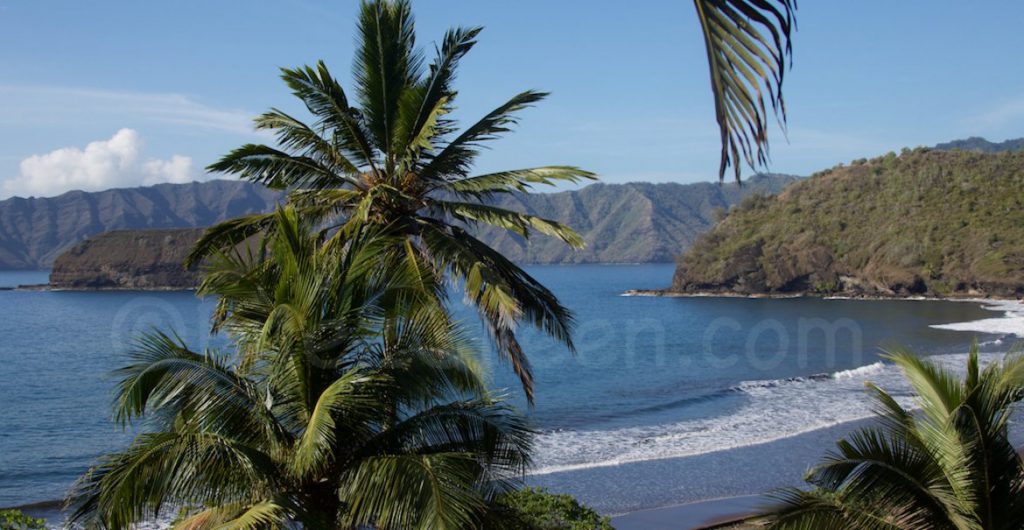A range of traditional know-how that it is urgent to rediscover
New birds that populate the islands, plant species that disappear, the receding coastline, coral whitening…In the Pacific, worry arises.
“In 2010 a mayor of the Tuamotu Archipelago wrote to elected officials in Marquesas Islands to request asylum climate, it has questioned us,” reports Pascal Erhel Hatuuku who came from his islands to participate to meetings entitled “Aboriginal Peoples to address climate change” held at UNESCO in Paris.
“People have the impression that the major issues are going very far away from them.” But if there is urgency, it is rather to seek what can address the challenges of adaptation and mitigation to climate change.”
For example, traditional houses, the “fare” are already bioclimatic constructions. The Tuamotu atoll gardens are resting on the coral, yet it manages to cultivate are tubers, taro, digging to get closer to the freshwater lens: it is permaculture before the hour! “Fermentation silos dug in the ground, able to retain the seeds of the bread tree for four to five years, the effectiveness of the paddle-shaped bird’s head, it identifies such declining customs that did not require Yet no fossil energy debauchery.
The success of educational marine protected areas
In the Marquesas, several educational marine protected areas supervized by schoolchildren have been set up ; they’re based on the ancient concept of “Rahui” customary, that provides limited access to certain resources. Managing fish stocks, asking parents to anchor their fishing boats further gives rise to lively debate, equally essential.The idea has won in Paris.
Wednesday, December 2, in the grounds of the COP21 at Le Bourget, Segolene Royal has signed an agreement with the President of French Polynesia, Edouard Fritch, to promote this educational charter. “We will have at least a generation, the children, that really understand the message of the essential safeguard of the oceans,” said the minister of ecology.



